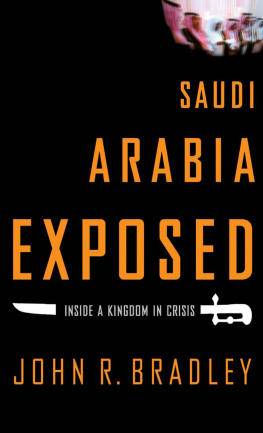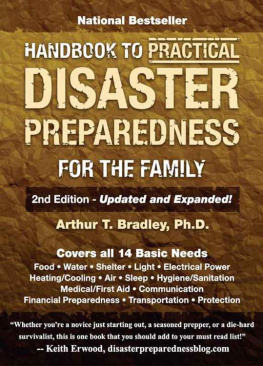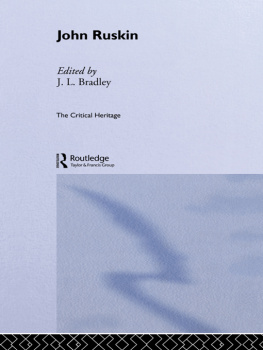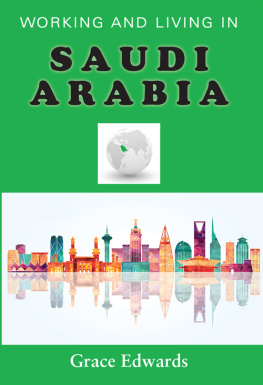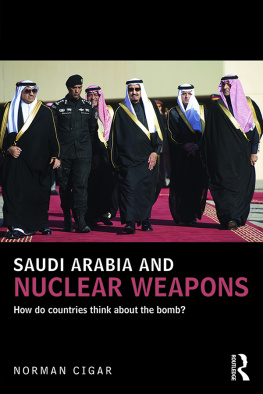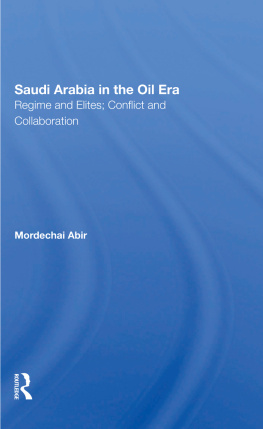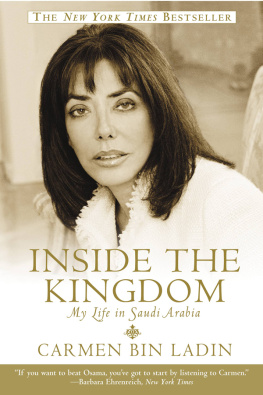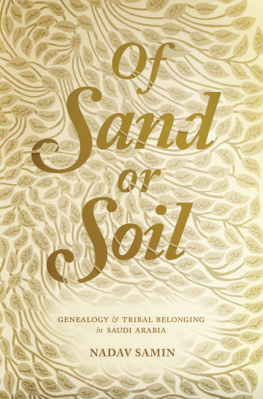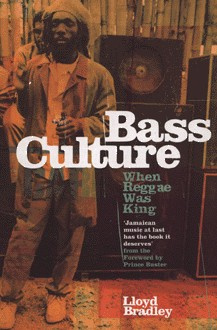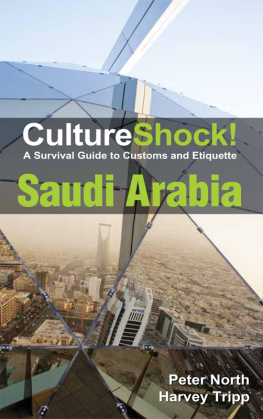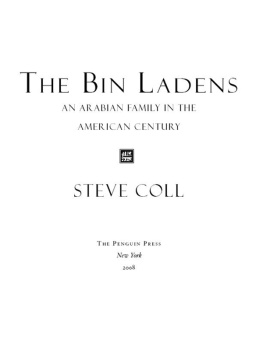
The author and publisher have provided this e-book to you for your personal use only. You may not make this e-book publicly available in any way. Copyright infringement is against the law. If you believe the copy of this e-book you are reading infringes on the authors copyright, please notify the publisher at: us.macmillanusa.com/piracy.
Contents
For
Nicolas Buchele
David Pervin at Palgrave Macmillan was everything any author could wish for, and much more besides, in an editor, and I owe him an immense personal debt of gratitude for his willingness to go far beyond the call of professional duty while guiding this project from the proposal stage through to completion.
Nicolas Buchele was a constant pillar of support, and this book could not have been written without his help.
Sheldon M. Novick, a fellow Henry James scholar, offered invaluable suggestions in the early stages about how to make the material in chapter 1 more accessible to the general reader.
Anthony Pauls input on the Saudi youth chapter was timely, and much appreciated, and I am grateful to him too for helping me to work through some of my ideas about the kingdom during our coffee breaks.
My trips to Asir and Al-Jouf were undertaken in the company of Roger Harrison, whose enthusiasm and sense of adventure were truly inspiring. The material on Al-Jouf and Asir in chapters 2 and 3, some of which we worked on together for a special supplement in Arab News, has benefited still more from his subsequent input and advice. I am especially grateful for his permission to draw on the Arab News material.
All the opinions expressed in this book, and any errors that may have crept into it, are of course entirely my own responsibility.
The Kingdom of Saudi Arabia, so extraordinarily introverted and completely closed to outsiders, is perhaps the worlds last great, forbidden country. For most Westerners, it exists only in the realm of the imagination, with images feeding off tales of both the exotic and the violent: Oriental clichs of the sensuous, secretive, and tempting East that have, somewhat incongruously, combined with the continuous clamor and bang of the war-on-terror rhetoric in the wake of the September 11, 2001 attacks.
That said, there are thousands of Western expatriates inside the Islamic kingdom, some of whom claim that they always knew they were somehow destined to live there. Unlike the vast majority of expatriates who had hoped against hope that they never would have to live in Saudi Arabia, but were finally tempted by the high salaries, this other small band of romantic fatalists is rarely driven to distraction by the restrictions imposed by local customs and traditions: the mind-bogglingly inefficient bureaucracy; the shops and restaurants pulling down their shutters five times a day during prayer time; the prowling religious police; the kind of reckless driving that can only be described as suicidal. They feel, perhaps despite themselves, an almost tangible sense of privilege to have gotten in. And they experience a correspondingly immense sadness when, at last, it is time once again to move onemotions complicated and deepened by the knowledge that, because Saudi Arabian tourist visas for the independent traveler do not exist, there is no way of returning, once passport control has finally been cleared.
When I moved to Saudi Arabia to join the editorial team of the kingdoms main English-language newspaper, Arab News, I was not one of those who always believed that fate, or kismet, would lead me to the kingdom. My interest in the Middle East, however, had already led me to learn Arabic and to travel in many other countries in the region and then to settle for a year and a half in Cairo. One day in late 2000 I overheard an Egyptian colleague at Al-Ahram Weekly, a respected Cairo-based newspaper I worked for while studying Arabic more intensively at a local language school, mention that he had been an editor in Jeddah for many years on Arab News. After September 11, the newspaper would for a time be one of theif not the most quoted in the world, as its website would provide the only window onto the kingdom and regularly get in excess of 2.5 million hits a day. It would be championed by liberals in the West as a voice of Saudi sanity, but damned by neoconservatives as a mouthpiece for the Saudi regime, which appoints a prince as chairman of the company that publishes the newspaper. I asked my colleague to write a letter of introduction on my behalf to the newspaper. He agreed. But he held out little hope of success. In late 2000, a year before the September 11 attacks, Western journalists were almost never given visas to visit Saudi Arabia. If they were, it was on condition that they were accompanied everywhere during their three-day visit by a minder from the Ministry of Information. The minder made sure that nothing unpleasant was seen by the journalist, and that he heard nothing other than the official line from carefully vetted individuals: Saudi Arabia is a land of peace and harmony.
Six months later, I was sitting in the Arab News office in Jeddah. For the next two and a half years I worked for the newspaper, as news editor and then managing editor. During that period I spent only five weeks outside the kingdom, choosing to spend most of my annual vacation time traveling to the remoter regions inside it. Other Westerners had previously gotten jobs as copy editors on local newspapers in Saudi Arabia, including Arab News. But they were typically part-timers who worked officially as English teachers; and, even if they were not, they usually had researcher or lecturer written on their residence permits, generally did not write articles, and were limited (as were all foreigners, until recently) to traveling only in approved areas. In contrast, my own residence permit, which I received a few months after my arrival, had journalist written in it. Stranger still was that I had not been asked even to go through the formality of signing a piece of paper in order to receive it, let alone been required to undergo the notoriously thorough medical examinations that are, by law, a prerequisite for the submission of any work visa application.
And so, a few months before September 11, when everything inside the kingdom was pretty much just bumbling along as normal, I found myself the only permanent, accredited Western journalist in a country that everyone in the world, and especially Americans, would suddenly want to know so much more about after the attacks took place. The two and a half years I spent in Saudi Arabia turned out to be not only the most tumultuous of my life, but also a period of unprecedented political and social turmoil for the kingdom itself, with a crisis in U.S.-Saudi relations and the stirrings of a home-grown Islamic uprising. Fate would have it, too, that the law banning expatriates from internal travel, without first seeking permission from their sponsor, was abolished almost on the day of my arrival. I was therefore able to travel throughout Saudi Arabia, from its remotest village mountains to its least accessible city slums, without any restrictions, and (just as importantly) without a minder. And I could talk to anyone who would agree to talk to me.
While I was not one of those expatriates who believed they were always destined to live in Saudi Arabia, what I did share with such folk was a romanticism about the kingdom as a land that was intriguing. In the first hours and days after my arrival, though, reality succeeded in undermining all my preconceptions. It succeeded, too, in the months and years that followed, in extinguishing the last remaining flames of my misconceptions.
Jeddah, in June 2001, was no longer the bride of the Red Sea, as it had historically been referred to, but rather, at first glance, nothing more inspiring than a bland Chicago suburb: so Westernized and modern with its flashing neon lights, its massive shopping malls. What had I expected to find? Something, I suppose, between what I had read in the seductive pages of Seven Pillars of Wisdom and the nightmarish reports on human rights abuses regularly issued, to great international fanfare, by Amnesty International. There were, it later became obvious, elements of both at play inside Saudi Arabia, and oftenespecially when it came to the Amnesty International reportsnot in ways that were manifested subtly. What became clearer in time, though, was that, hidden beneath its superficial veneer of modernity, the kingdom was not merely like nowhere in the West, but nowhere on earth. Even other Arabs consider it an enigmaas, for that matter, do many Saudis themselves.
Next page
